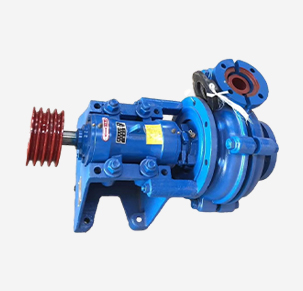English
- Afrikaans
- Albanian
- Amharic
- Arabic
- Armenian
- Azerbaijani
- Basque
- Belarusian
- Bengali
- Bosnian
- Bulgarian
- Catalan
- Cebuano
- Corsican
- Croatian
- Czech
- Danish
- Dutch
- English
- Esperanto
- Estonian
- Finnish
- French
- Frisian
- Galician
- Georgian
- German
- Greek
- Gujarati
- Haitian Creole
- hausa
- hawaiian
- Hebrew
- Hindi
- Miao
- Hungarian
- Icelandic
- igbo
- Indonesian
- irish
- Italian
- Japanese
- Javanese
- Kannada
- kazakh
- Khmer
- Rwandese
- Korean
- Kurdish
- Kyrgyz
- Lao
- Latin
- Latvian
- Lithuanian
- Luxembourgish
- Macedonian
- Malgashi
- Malay
- Malayalam
- Maltese
- Maori
- Marathi
- Mongolian
- Myanmar
- Nepali
- Norwegian
- Norwegian
- Occitan
- Pashto
- Persian
- Polish
- Portuguese
- Punjabi
- Romanian
- Russian
- Samoan
- Scottish Gaelic
- Serbian
- Sesotho
- Shona
- Sindhi
- Sinhala
- Slovak
- Slovenian
- Somali
- Spanish
- Sundanese
- Swahili
- Swedish
- Tagalog
- Tajik
- Tamil
- Tatar
- Telugu
- Thai
- Turkish
- Turkmen
- Ukrainian
- Urdu
- Uighur
- Uzbek
- Vietnamese
- Welsh
- Bantu
- Yiddish
- Yoruba
- Zulu
Telephone: +86 13120555503
Email: frank@cypump.com
Sep . 05, 2024 22:46 Back to list
Sewage Ejector Pump System | Efficient Wastewater Management
Understanding Sewage Ejector Pump Systems
Sewage ejector pump systems play a crucial role in modern plumbing, particularly in homes and buildings that are situated below the main sewer line. These systems are designed to transport wastewater and sewage from lower levels to the sewer system, ensuring proper sanitation and waste management.
At the heart of an ejector pump system is the sewage ejector pump itself. This type of pump is specifically engineered to handle solids and debris, unlike typical sump pumps that handle only water. The ejector pump is typically installed in a basin or pit, where it collects wastewater from various plumbing fixtures, such as toilets, sinks, and washing machines.
When the wastewater rises to a certain level in the basin, a float switch activates the ejector pump. The pump then begins to work by creating pressure that pushes the sewage through a discharge pipe and upwards towards the main sewer line. This process is vital for homes with basement bathrooms or laundry rooms, as gravity alone cannot move sewage from below the sewer line level.
sewage ejector pump system

One of the noteworthy features of sewage ejector pumps is their ability to handle solid waste. Typically, these pumps can manage debris up to 2 inches in diameter, ensuring that home plumbing systems remain unobstructed. This capability is essential for preventing clogs and backups, which can lead to unpleasant odors, unsanitary conditions, and costly repairs.
Maintenance of a sewage ejector pump system is crucial for its longevity and efficiency. Regular checks to ensure that the float switch is functioning correctly, along with periodic cleaning of the pump and basin, can prevent many common issues. Homeowners should also be cautious about what gets flushed down toilets or poured down drains, as improper disposal can lead to pump failure.
Moreover, understanding the installation requirements for sewage ejector pump systems is key. Local building codes often dictate the necessary plumbing installations, and professional assistance is usually recommended to ensure proper setup and compliance with regulations.
In conclusion, sewage ejector pump systems are essential for effective waste management in homes below the main sewer line. Their ability to handle solids, combined with the need for regular maintenance, makes them a vital component in modern plumbing. Homeowners should invest time in understanding their ejector pump systems to ensure proper functionality and longevity, thus protecting their homes from potential plumbing disasters.
-
ISG Series Vertical Pipeline Pump - Chi Yuan Pumps Co., LTD.|Advanced Hydraulic Design&Energy-Efficient Solutions
NewsJul.30,2025
-
ISG Series Vertical Pipeline Pump - Chi Yuan Pumps Co., LTD.
NewsJul.30,2025
-
ISG Series Vertical Pipeline Pump - Chi Yuan Pumps Co., LTD.|energy-efficient fluid handling&industrial durability
NewsJul.30,2025
-
ISG Series Vertical Pipeline Pump - Chi Yuan Pumps | Advanced Engineering&Industrial Efficiency
NewsJul.30,2025
-
ISG Series Pipeline Pump - Chi Yuan Pumps | High Efficiency, Energy Saving
NewsJul.30,2025
-
ISG Series Vertical Pipeline Pump-Chi Yuan Pumps|High Efficiency&Reliable Performance
NewsJul.29,2025










